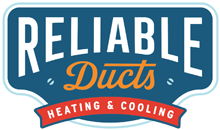Your HVAC (Heating, Ventilation, and Air Conditioning) system is a vital component of your home, especially when it comes to maintaining comfort throughout the year. However, like any complex system, HVAC units can encounter issues from time to time. Knowing how to troubleshoot common problems can save you time, money, and discomfort. Homeowners should be aware of the following five HVAC troubleshooting tips:
- Check the Thermostat:
Often, issues with your HVAC system can stem from a simple problem with the thermostat. Make sure the thermostat is set to the correct mode (heating or cooling) and temperature. Verify that the batteries are functional and that the thermostat is clean and free from any debris or obstruction. Additionally, consider upgrading to a programmable or smart thermostat for more precise temperature control and energy savings.
- Inspect Air Filters:
Clogged or dirty air filters can restrict airflow, reducing the efficiency of your HVAC system and potentially causing damage over time. Check your air filters regularly and replace them as needed, typically every one to three months, depending on usage and filter type. In addition to enhancing indoor air quality, clean air filters also make your HVAC system function more smoothly and effectively.
- Clear Air Vents and Registers:
Blocked or obstructed air vents and registers can impede airflow, leading to uneven heating or cooling throughout your home.Make sure that no furniture, drapes, or other objects are blocking the openings of any vents or registers. Vacuum or dust the vents periodically to prevent the buildup of dirt and debris, which can restrict airflow and diminish system performance.
- Examine Circuit Breakers and Fuses:
If your HVAC system is not functioning at all, it may be due to a tripped circuit breaker or blown fuse. Check the electrical panel to see if the circuit breaker associated with your HVAC system has tripped or if any fuses have blown.If required, change the fuse or reset the circuit breaker. If the issue continues, seek the advice of a qualified HVAC specialist or electrician to find and fix any underlying electrical problems.
- Schedule Regular Maintenance:
Preventive maintenance is key to keeping your HVAC system running efficiently and extending its lifespan. Schedule annual maintenance appointments with a licensed HVAC technician to inspect, clean, and tune up your system. Regular maintenance can identify potential issues early on, prevent costly repairs, and ensure optimal performance year-round. Additionally, consider signing up for a maintenance plan with your HVAC provider for added convenience and peace of mind.
By familiarizing yourself with these five HVAC troubleshooting tips, you can tackle common issues with confidence and keep your HVAC system operating smoothly. Remember, while DIY troubleshooting can resolve many problems, always seek professional assistance for complex issues or if you’re unsure about performing repairs yourself. Your HVAC system can last for many years to come if it receives the right maintenance and care.
